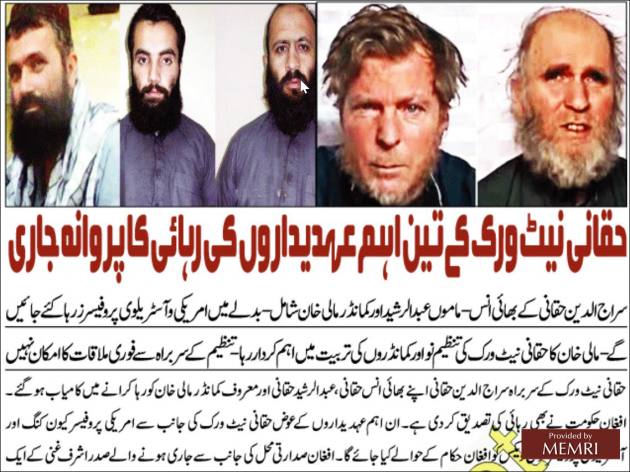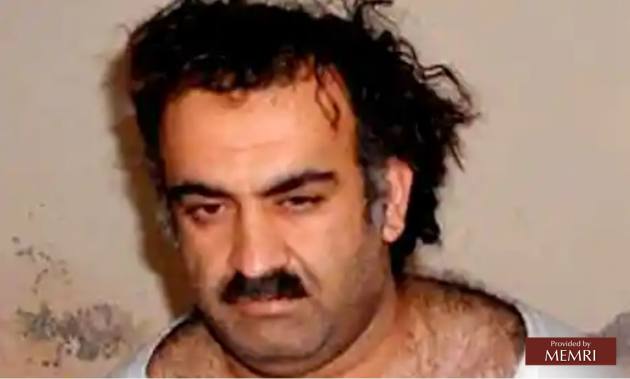If you watch any television, you’ve probably seen the commercials. Qatar Airlines touts itself as a modern, western airline with global reach offering passengers unparalleled comfort. But the airline is owned by Qatar’s government which has been exposed as supporting jihadists.
A MEMRI Special Report
A new report examines Qatar’s relationships with jihadi organizations. Right through the 1980s, Afghan mujahideen – backed by the U.S., Pakistan, Saudi Arabia, and Arab donors – fought against the Soviet troops from their hideouts in the mountainous terrains of Afghanistan. Since the 9/11 attacks on New York, the Pentagon, and other American targets, the Islamic Emirate of Afghanistan (the Afghan Taliban, especially its Haqqani Network) has been fighting and killing American and NATO soldiers from its shelters in Afghanistan and in Pakistani cities such as Abbottabad, Rawalpindi, Karachi, and Quetta.
While this situation has not changed, a new dimension has been added since 2013: As part of a highly ingenious plot, which the world is yet to realize, the Afghan Taliban leaders’ hideouts have moved to the safe haven of Doha, the capital of Qatar, from where the senior-most Taliban commanders plot, direct, and execute terror attacks on U.S. and NATO troops in Afghanistan. These jihadi leaders execute such anti-U.S. activities while dining with American officials in Qatar’s luxurious hotels in the name of peace talks.
While American taxpayers bear the cost of the meals that U.S. officials have with the Taliban commanders in Qatar, it is disturbing to learn that three top commanders of the Haqqani Network – Anas Haqqani, Hafiz Rashid, and Haji Mali Khan – may soon settle in Doha, Qatar. Under a U.S. deal with the Taliban, the Afghan government reluctantly agreed to free the three terrorists in exchange for two Western professors of the American University of Afghanistan. The attempt to move the Haqqani Network’s commanders to Doha is perfectly in tune with Qatar’s long-standing relationship with jihadi commanders, as this report will review.
The Trilateral Relationship Between Qatar, Pakistan, And The Taliban
In a November 13, 2019 article in Roznama Ummat, a pro-Taliban Urdu-language daily, noted that the three Haqqani Network commanders will “be taken to Qatar within a week.” The Haqqani Network, founded by late jihadi commander Jalaluddin Haqqani, and now run by his son Sirajuddin Haqqani, is a highly effective terror organization within the Afghan Taliban. On September 22, 2011, Adm. Mike Mullen, the then chairman of the Joint Chiefs of Staff, testified before the Senate Armed Services Committee that the Haqqani Network carried out a truck bombing at a NATO post and another attack on the U.S. Embassy in Kabul earlier that month.
Two of the three terrorists being freed are related to Sirajuddin Haqqani: Anas Haqqani is Sirajuddin’s brother, and Hafiz Rasheed is their maternal uncle. Of the third terrorist being freed, Roznama Ummat noted: “[Haji Mali Khan] has played an important role in the reorganization of the Haqqani Network and training of its commanders.”
Qatar and Pakistan are working in tandem to move the Taliban leaders to Doha. This suits Pakistan, which has been under scrutiny by the international community for supporting the Taliban. Further, not only do these commanders work freely from Qatar, but they also help Pakistan escape international scrutiny for its support to them. The Haqqani Network is a terror behemoth with up to 20,000 members.
In his 2011 testimony, Mullen clearly said that the Haqqani Network executed the terror attacks with the aid of the Pakistani military’s Inter-Services Intelligence (ISI), stating: “The Haqqani Network acts as a veritable arm of Pakistan’s Inter-Services Intelligence agency” and “with ISI support, Haqqani operatives planned and conducted that truck bomb attack, as well as the assault on our [American] embassy.” America’s top military general added: “We also have credible evidence that they were behind the June 28th attack against the Intercontinental Hotel in Kabul and a host of other smaller but effective operations.
In the years after 9/11, Qatar emerged as a preferred host for jihadi groups and their commanders. In 2016, a journalist reported: “In one western district [of Doha], near the campuses hosting branches of American universities, Taliban officials and their families can be found window-shopping in the cavernous malls.” The report noted: “Officials from Hamas, a Palestinian militant group, work from a luxury villa near the British Embassy, and recently held a news conference in a ballroom at the pyramid-shape Sheraton hotel.”
Qatar’s critics say: “Doha, rather than the benign meeting ground described by Qataris, is a city where terrorism is bankrolled, not battled against.” Qatar is also host to the radical Egyptian cleric Sheikh Yusuf Al-Qaradawi, who radicalizes Muslims by issuing statements such as: “We have the ‘children bomb,’ and these human bombs must continue until liberation.”
Qatari Emir’s Role In Protecting “The Principal Architect Of The 9/11 Attacks”
Qatar also has a long-standing relationship with not only the Taliban and Haqqani Network but also with Al-Qaeda commanders and Pakistani jihadis such as Khalid Sheikh Mohammed. According to Richard A. Clarke, who served as National Coordinator for Security and Counter-Terrorism under presidents Bill Clinton and George W. Bush, Qatar was instrumental in foiling the arrest of Khalid Sheikh Muhammad (KSM) – the Pakistani terrorist described in The 9/11 Commission Report as “the principal architect of the 9/11 attacks” on American cities.
The 9/11 Commission Report observed: “In 1992, KSM spent some time fighting alongside the mujahideen in Bosnia and supporting that effort with financial donations. After returning briefly to Pakistan, he moved his family to Qatar at the suggestion of the former minister of Islamic affairs of Qatar, Sheikh Abdallah bin Khalid bin Hamad Al Thani. KSM took a position in Qatar as project engineer with the Qatari Ministry of Electricity and Water. Although he engaged in extensive international travel during his tenure at the ministry – much of it in furtherance of terrorist activity – KSM would hold his position there until early 1996, when he fled to Pakistan to avoid capture by U.S. authorities.”
However, it was the Qatari government that enabled KSM to flee. According to The 9/11 Commission Report, after an indictment against KSM was obtained from a U.S. court in January 1996, “an official in the government of Qatar” warned KSM about it and he successfully “evaded capture (and stayed at large to play a central part in the 9/11 attacks).” It was also from Qatar that KSM wired money to Mohammed Salameh, a co-conspirator of Ramzi Yousef, who had been involved in several other terror plots and was convicted in the U.S. for his role in the 1993 World Trade Center bombing.
Clarke, who chaired the multi-agency Counter-Terrorism Security Group (CSG), noted that 9/11 attacks could have been prevented if KSM’s arrest was not foiled by Qatar. He wrote: “We could not trust the Qatar government sufficiently for us to do what otherwise would have been obvious: ask the local security service to arrest him and hand him over. The Qataris had a history of terrorist sympathies and one cabinet member in particular, a member of the royal family, seemed to have ties to groups like Al-Qaeda and appeared to have sponsored KSM.”
However, a decision was taken to talk to the Qatari government to arrest KSM. “Within hours of the U.S. ambassador’s meeting with the Emir [of Qatar to seek the arrest], KSM had gone to ground. In tiny Doha, no one was able to find him. Later, the Qataris told us that they believe he had left the country. They never told us how,” Clarke noted. In 1996, Hamad bin Khalifa Al Thani was the emir of Qatar, succeeded later by his son Tamim bin Hamad Al Thani.
Qatar’s Long-Standing Relationship With The Afghan Taliban

October 31, 2019: Afghan Taliban leader Mullah Baradar Akhund hands over certificates to students at a graduation ceremony in Doha
–memri.org. Exploring the Middle East and South Asia through their media, MEMRI bridges the language gap between the West and the Middle East and South Asia, providing timely translations of Arabic, Farsi, Urdu-Pashtu, Dari, and Turkish media, as well as original analysis of political, ideological, intellectual, social, cultural, and religious trends.
 Metro Voice News Celebrating Faith, Family & Community
Metro Voice News Celebrating Faith, Family & Community










